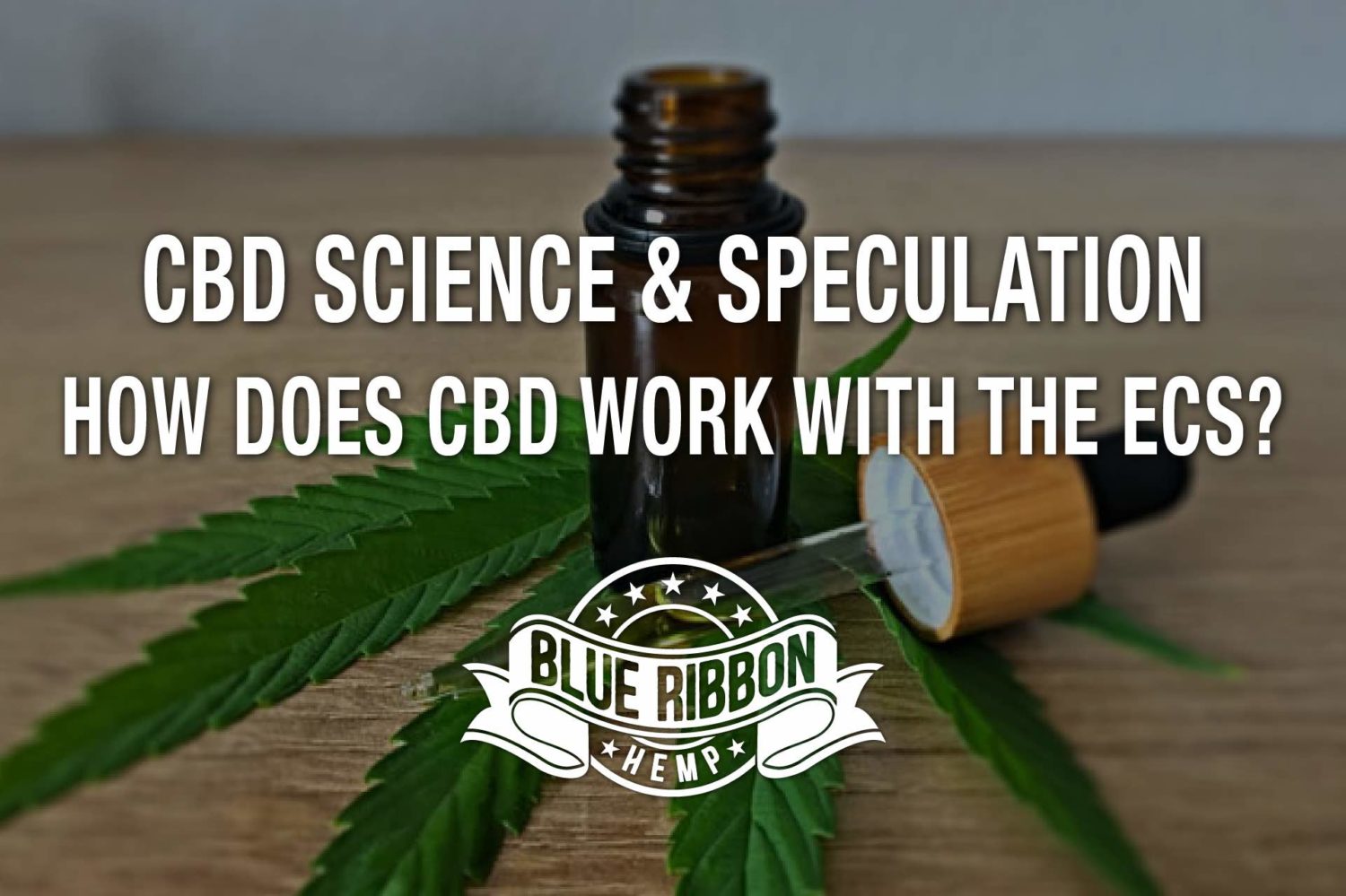This article was originally published on Blue Ribbon Hemp. To view the original article, click here.
To date, cannabis is the only plant we know of that has an over-abundance of cannabinoids. These fat-soluble compounds are unique because they interact with our body’s natural endocannabinoid system (ECS). However, not all cannabinoids have the same effect on our cannabinoid receptors.
Puzzlingly, it appears CBD doesn’t directly impact the body’s ECS. However, as researchers continue to look into CBD’s complex interactions, they’ve begun to understand how it can positively impact various aspects of wellness.
Wait, What’s An Endocannabinoid System? — A Brief Intro To The ECS
It doesn’t make sense to talk about CBD’s impact on the ECS if you don’t know what the ECS is, right? Unlike the nervous or digestive system, the ECS isn’t the most prominent part of our physiology. However, just because scientists only recently discovered the ECS doesn’t mean it’s any less significant.
Basically, the ECS refers to a complex collection of endocannabinoids and cannabinoid receptors. Although endocannabinoids are similar to the phytocannabinoids in hemp, they are natural to the body. By contrast, we can only find phytocannabinoids like CBD in cannabis plants.
What do all these endocannabinoids do? Apparently a whole lot! Although the research into the ECS is just beginning, scientists believe the ECS plays a crucial role in maintaining a sense of internal balance. A few functions where the ECS may play a pivotal role include mood regulation, sleep, and pain tolerance.
So, What Does CBD Do In The ECS?
There are many theories surrounding how CBD interacts with the ECS. Although researchers aren’t 100 percent sure how CBD works, most agree it doesn’t bind with cannabinoids receptors like THC. In fact, some data suggests CBD blocks THC from landing on CB1 and CB2 receptor sites. This could explain why hemp strains with high CBD have virtually no psychoactivity.
Instead of binding with cannabinoid receptors, CBD appears to influence the reuptake of various substances. In particular, researchers believe CBD helps the body produce more of the endocannabinoid anandamide. Although anandamide is involved in many bodily processes, it’s crucial for improving mood. In fact, the word “ananda” literally means “bliss” in Sanskrit.
There’s also research that suggests CBD could influence the production of serotonin. Like anandamide, the neurotransmitter serotonin is closely associated with feelings of contentment. In fact, SSRI drugs are supposed to boost serotonin’s reuptake. Many doctors are hopeful CBD oil could become a new natural alternative to SSRIs for patients struggling with anxiety or depression.
See How CBD Impacts Your ECS With Blue Ribbon Hemp!
Blue Ribbon Hemp’s CBD for seniors is designed to take full advantage of the ECS. However, unlike full-spectrum CBD brands, we always purify delta-9 THC from our broad-spectrum hemp extracts. This way, customers could enjoy the full benefits of CBD and other non-psychoactive hemp cannabinoids without worrying about THC exposure.
Anyone interested in seeing how CBD will affect their ECS should review Blue Ribbon Hemp’s lab-verified CBD tinctures, creams, and oral strips. You can find more info on our quality standards on this page.








